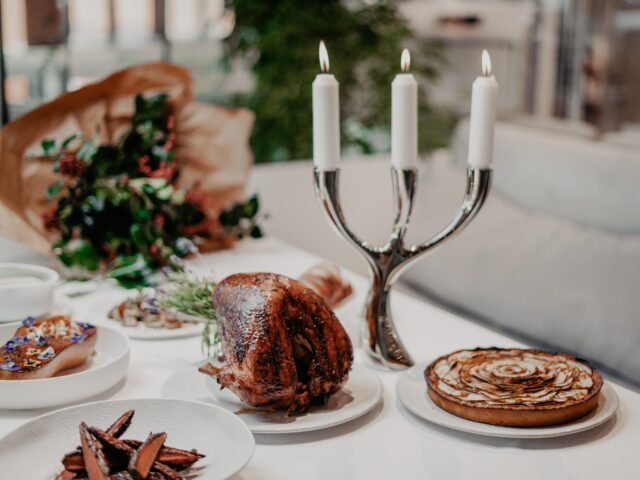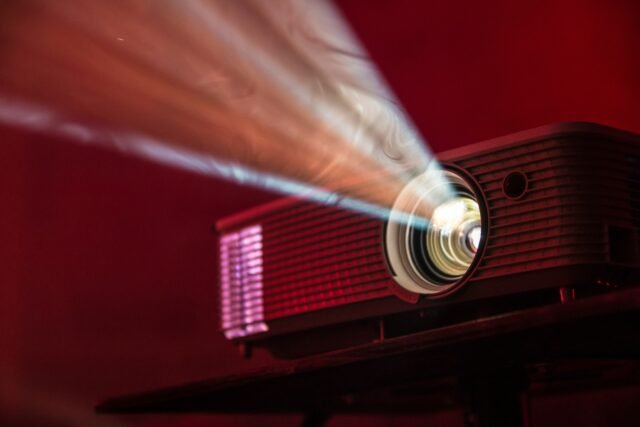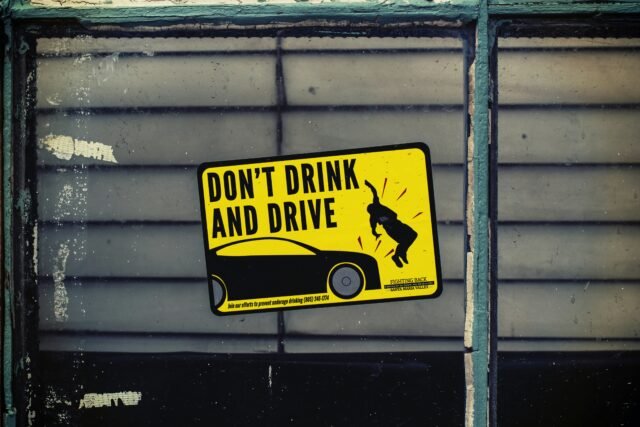Published:
A simple guide on avoiding common issues that can arise over the festive period in England & Wales

There’s no denying the enthusiasm you feel when Michael Bublé’s, ‘It’s Beginning to Look a Lot like Christmas’ consumes our radios, TVs, retail spaces and homes.
This can mean just one thing: it’s finally Christmas!
And to the trade, maybe this year more than ever due to the relentless economic hits it has taken, it is probably more crucial than ever.
So, we thought that we could make it a little easier for you by producing a simple licensing ‘best practice’ guide. This will help you steer clear of falling foul of licensing law.
In a nutshell, you can remind yourself about:
1. Handling drunk customers
Holiday cheer and high spirits have always been associated with the festive period, but given the year we’ve faced, some people might indulge in alcohol a little too much. And if your customers do, do you know what to do?
Lack of clear guidance
Unfortunately, there is a lack of clear guidance on assessing if people are drunk or not. So, we thought that giving you some basic advice around this issue would be helpful. And you won’t be surprised to hear that this advice, like so much in the trade, is centered around training.
But before we look at this, remember that it is illegal to knowingly sell alcohol to someone who is drunk. It is also illegal to knowingly allow alcohol to be sold to someone who is drunk.
Practical actions you can take:
- Can you and your teams spot the signs of someone who is drunk trying to enter your premises and / or to be served – signs include slurred speech, glazed eyes or being unsteady on their feet;
- Are you and your teams aware that if a customer appears to be drunk, then it would be sensible not to admit them onto your premises and you must refuse service. In reality, and particularly when you are busy, it can be difficult to tell. So, if your teams suspect someone is drunk, but are unsure, it is usually best to err on the side of caution and refuse entry and / or service (although see the final point below about vulnerable people)
- Are you aware of the need to monitor customers who have already been admitted to the premises and / or previously been served. It may well be that when they arrived, they appeared fine, but then they have later become drunk. This can happen if they have consumed a large quantity of alcohol just before entering your premises, but this didn’t take effect until after they had been served.
- Do not allow a customer to purchase drinks for someone else who is drunk (as this is a separate offence committed by the purchaser). If you suspect someone is doing this, you should refuse service.
- Do not encourage customers to drink large quantities of alcohol – for example, irresponsible promotions. Your staff should be aware of the Mandatory Conditions in relation to the availability of small measures for beer, certain spirits and wine.
- Are staff aware of their wider duties? Someone who is drunk is a vulnerable person. Someone who appears to be drunk may in fact have a disability and may or may not be vulnerable. Either way, your staff should be aware of their responsibilities and any procedure under your Vulnerable Persons of similar Policy should kick in.

2. 12 tips to avoid underage drinking
Another prevalent issue at Christmas time is the issue of underage sales, not least because premises are often very busy which can makes things a little trickier.
And this is one which always causes some confusion around the age of which children can drink alcohol on licensed premises.
So to help, here is your list of 12 tips which you can use to minimise the chances of underage drinking on your premises.
- As a licence holder you must ensure that an Age Verification Policy applies to the premises. As a minimum, it must require individuals who appear to be under the age of 18 years of age to produce on request (before being served alcohol) identification. This must bear their photograph, date of birth and either a holographic mark or ultraviolet feature. Such ID can be a passport, photo card driving licence, PASS-approved card or military ID.
- The DPS must enforce this Policy – ensuring not only that staff are aware of the Policy but are also applying it. Challenge 21 or Challenge 25 will often provide greater protection to you and your staff than the minimum legal requirement to challenge anyone who appears to be under 18.
- Staff training – ensure all your staff are trained before they first start work at your premises, and that refresher training is regularly provided. It is important that they understand their legal obligations. It is also important that they do, so keep a record of the training and ask the member of staff to sign that they have understood it.
- Fines – Remind members of staff that they themselves might be personally liable if they sell to young persons in breach of legal requirements. This is normally £90 payable within 21 days.
- Maintain a Refusals Log – All refusals should be recorded (date, time, incident, description of potential buyer if possible). Some tills of course have a refusals system built in but as always, do not rely solely on electronic safeguards.
- Staffing numbers – no Age Verification Policy can work if customers are nine deep at the bar and only one person is serving. Try as far as possible to ensure you have sufficient staff to give them time to properly assess the age of potential buyers and that senior management are available to assist if the situation becomes heated.
- Door staff – Can act as your first line in defence, with your bar staff acting as the second. Do not, however, allow your bar staff to become complacent simply because the door staff control admission to the premises. Assuming someone to be old enough to buy alcohol just because they are on the premises is dangerous and to be avoided.
- ID scan / Club scan – For certain higher-risk venues this system can be very effective in eliminating underage sales.
- Signage – It might sound a little ‘old school’, but posters / notices displaying your policy on underage sales will make any potential underage buyers think twice about trying it on in your premises
- CCTV – again, used appropriately this can be a good deterrent
- Proxy Sales – Staff should remain vigilant to the age profiles of groups of customers to avoid adults purchasing alcohol destined for somebody under age.
- More generally, consider the culture of your premises, your promotional material (both printed and online), the drinks and drinks promotion that you offer – if these inevitably attract a younger crowd then your policies and procedures will have to be more robust

3. The law around allowing under 16s or 17 year olds to drink alcohol on licensed premises
Something to keep in mind, which is always one of the most asked questions we receive, is when can an under 18 drink alcohol on licensed premises. The Licensing Act 2003 states that a 16 or 17 year old may consumer beer, wine or cider with a table meal as long as the alcohol is purchased by someone over the age of 18.
We know this causes lots of anxiety among many operators who are, quite rightly, scared of breaking the law in relation to underage sales.
Similarly, many operators choose to exclude under-18s from their premises altogether, irrespective of whether that is a condition of their premises licence or not.
It is worth noting that while the law may permit the sale, there is nothing to prevent you from exercising discretion and having a policy which refuses service to under 18s.
This is something to consider as the busy festive season fast approaches.

4. Dealing with noise complaints
The festive period is a fun time. It’s not called the party season for nothing.
So naturally, it is a time when many licensed premises hold parties or have extensions to their trading hours, often by applying for a temporary events notice.
Noise, however, is one of the most complained about issues for licensed premises. And, anecdotally at least, there seems to be a rise post Covid lockdown.
With noise, like so much in the licensing world, it is better to be proactive rather than reactive. So here are some practical tips for keeping the noise down:
- Notify neighbours of proposed one off events and provide a point of contact to ensure that a positive relationship is maintained;
- Consider any existing restrictions or conditions on your premises licence, which may already prescribe the measures you should have in place to control or limit the escape of music (noise) from your venue;
- Be proactive when addressing any noise issues raised by neighbours or your local Environmental Health Officer;
- Seek advice early from your local Environmental Health Department;
- Consider obtaining advice from an acoustic expert to look at any potential systems you could implement to reduce the risk of noise escape. Sound monitors and environmental noise control systems come in a variety of types with costs ranging from around £300 to over a thousand. The following systems can be considered depending on your particular set up and requirements:
- Noise warning systems can be used to monitor noise levels. Systems may use a traffic light system to display the sound level produced compared to your preselected level. These types of monitors may be a cheaper option where a noise limiting device is not required:
- A sound attenuation system can be used to continually monitor sound levels and automatically reduce the volume if a pre-set limit is exceeded.
- A sound monitoring and mains power switching unit can be used which disconnects the power to sound equipment if a limit is breached for a certain length of time. If your venue provides live bands, they may be able to connect their equipment into a power source controlled by this type of device.
What if you are served a noise abatement notice?
If your party does result in a visit from your Environmental Health Officer who serves you a noise abatement notice, take advice on whether or not you should appeal.
You need to be quick, as you only have 21 days beginning with the date of service of the notice in which to do so.
This area of law is a very technical one but at the very least appealing the Notice may protect you from prosecution in the short term should you breach it and also provide you with some leverage in negotiations with the EHO as to a longer term solution.

5. Regulated entertainment
You might be thinking you want live music, recorded music, performance of plays and dance, or even Christmas classic films.
Check that the activities authorised by your premises licence are correctly licensed for your festive activities. Check this as early as possible.
If the activities you need are not on your premises licence or the hours for which they are permitted is not sufficient, you should consider applying for a temporary event notice (TEN). Many premises licences allow an extension of hours on certain notable days over Christmas and the new year and it is worth checking these as it can save the time and expense of applying for a TEN.
Films
If you are intending to run a film night and play all the Christmas classics ensure that your premises licence permits the exhibition of films. If the movie happens to be broadcasting live on television, you will not need authorisation. You will also need copyright authorisation from the relevant film distributor, such as a licence from Filmbank, the British Film Institute or the Motion Picture Licensing Company.
Live music
Planning on offering a disco or live music event? Check your premises licence to ensure that you have the correct permissions and that there are no conditions restricting the times for any entertainment.
Remember, a lot of entertainment no longer needs permission until 11 pm. Also, if you are close to local residents and plan to hold an event that is likely to result in higher levels of noise than they may be used to, speak to them prior to the event.
Many people have time off work at Christmas and are likely to be at home more than normal, so the risk of disturbance can be higher.
Games
Games such as poker and bingo are popular all year round but they can be especially appealing during the festive period.
Poker and bingo are permitted in licensed premises but there are strict restrictions on the amount of stakes and prizes and you should take advice on these before offering poker or bingo.
This is where are specialist gambling solicitors come in hand, speak to them here.

6. Drink driving
The festive period will likely involve Police Drink and Drive Campaigns showing disturbing images and reinforcing the devastating effect that ‘just one more’ drink can have on families.
You will be aware of the unpredictability of those who drink mainly during the festive season and indeed of regular drinkers, but what about your responsibilities if they propose to drive home?
No matter how socially unacceptable and dangerous it is, if one of your customers decided to drink and drive, it is their personal responsibility. However, as a licensee, you do have a responsibility to encourage responsible alcohol consumption on your premises.
It might be helpful to increase the general awareness of your non or low alcohol drink offers. There has certainly been an increase in the number of alcohol-free or low alcohol drinks options available.
It is always good practice to ensure you have some measures in place so that you can offer your customers an alternative to driving home at the end of the evening. The measures could include ensuring you have telephone numbers of local taxi firms available and offering to call your customer a taxi if they need one.
If parking is available, confirming you are happy for customers to leave their cars in your car park, at their own risk, might encourage people to find alternative ways to get home.
Printable PDF
Download a printable version of this document using the link below.

